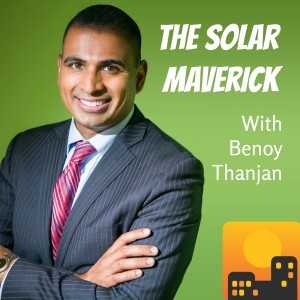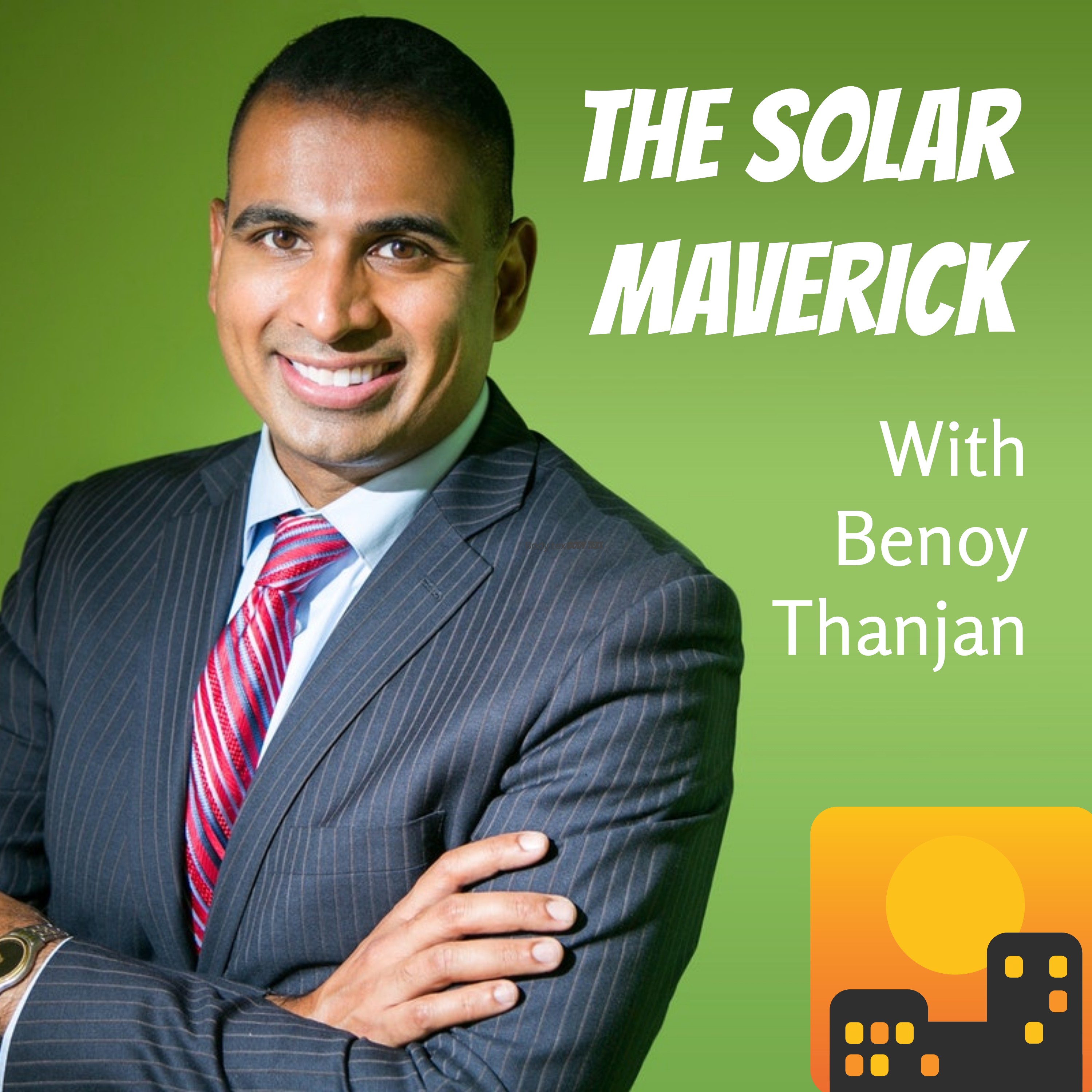Episodes

Tuesday Sep 03, 2019
SMP 44: Community Solar 201
Tuesday Sep 03, 2019
Tuesday Sep 03, 2019
SMP 44: Community Solar 201
Episode Summary
In this episode, Benoy and Suzanne talk about community solar and how it’s one of the fastest-growing areas of solar. They discuss the benefits and trends of community solar, and they go into the four different business models through which community solar projects get done. They also discuss legislation to keep the Investment Tax Credit at 30%.
Benoy Thanjan
Benoy Thanjan is the Founder and CEO of Reneu Energy, as well as an advisor for several solar startup companies. Reneu Energy is a premier international solar energy consulting firm and developer, and the company focuses on developing commercial and industrial solar, as well as utility-scale solar plus storage projects. The company also sources financing for solar projects and hedges both energy and environmental commodities. Reneu Energy has brokered $27 million in environmental commodity transactions.
Benoy received his first experience in Finance as an intern at D.E. Shaw & Co., which is a global investment firm with 37 billion dollars in investment capital. Before founding Reneu Energy, he was the SREC Trader in the Project Finance Group for SolarCity, which merged with Tesla in 2016. He originated SREC trades with buyers and co-developed their SREC monetization and hedging strategy with the senior management of SolarCity, to move into the east coast markets. Benoy also worked at Vanguard Energy Partners, Ridgewood Renewable Power, and Deloitte & Touche.
Suzanne Waters
Suzanne Waters is the Vice President of Business Development at Reneu Energy. She is an experienced solar professional with a broad knowledge of the industry, including project development administration, marketing best practices, financial strategy, and team leadership. Before joining Reneu Energy, Suzanne worked as the Business Development Manager and Proposal Team Leader at Vanguard Energy Partners, a national solar developer, and their affiliate firm, Vanguard Energy Capital. She oversaw proposal development and contract execution. Additionally, she collaborated on structured finance for large scale, multimillion-dollar projects.
Insight from this episode:
- Strategies to understanding community solar trends
- Secrets to community solar business models
- How to make community solar accessible to LMI customers
- Strategies on federal incentives for solar
- Strategies to keeping the Investment Tax Credit at 30 percent
Quotes from the show:
“Obviously the question you’re all asking, if you’re listening to this episode is ‘what is community solar?’... According to SEIA community solar is a situation where a center solar array is built either by utility, municipality, or some other third party owner.” – Suzanne Waters, Episode #44
“Today many American households and businesses don’t have access to solar because they rent, live in multi-tenant buildings, have roofs that are unable to host a solar system, or experience some other type of mitigating factor.” – Suzanne Waters, quoting from SEIA Episode #44
“Community solar expands access to solar for all, including, in particular, low to moderate-income customers most impacted by a lack of access, all while building a stronger distributed and more resilient electric grid.” – Suzanne Waters, quoting from SEIA Episode #44
“So what we’re finding is that financing communities are slowly getting more comfortable in having customers that are 100% residential. Where there’s no long-term contract. Where there’s no penalty if the customer opts out.” - Benoy Thanjan Episode #44
“So right now, what the investment tax credit is, it’s a credit on your taxes for 30% of the cost of the [solar] system. There’s actually a step down over the next couple of years, so till the end of 2019 it’s 30%, come 2020 it will be 26%, in 2021 it’s a 22% credit, and then in 2022 it’s 10%. – Suzanne Waters Episode #44
“If you want to take advantage of the 30% tax credit you have to have 5% of the [community solar] project procured by the end of 2019. And the biggest thing we see is that people will buy and secure the panels for their project.” – Suzanne Waters Episode #44
“The most common [business model for community projects] is a Special Purpose Entity, which is the SPE model… In this approach individuals or companies join in a business enterprise to develop a community solar project… Organizations may take advantage of incentives and tax credits that are available, that are unavailable to utilities.” - Benoy Thanjan Episode #44
Resources Mentioned:
For more information on community solar:
Listen to Episode #23: Community Solar 101
Listen to Episode #19: Customer Acquisition and Billing in Community Solar
Listen to Episode #42: How Solar Technology Is Changing the World!
Benoy referred to the eBook titled “Community Solar: What You Need To Know” created by Standard Solar. The link to the eBook is below.
Stay Connected:
Benoy Thanjan
info@reneuenergy.com
Suzanne Waters
suzanne@reneuenergy.com
www.linkedin.com/in/suzanne-waters-01bb6077/
Subscribe to our podcast + download each episode on itunes and Podbean


No comments yet. Be the first to say something!